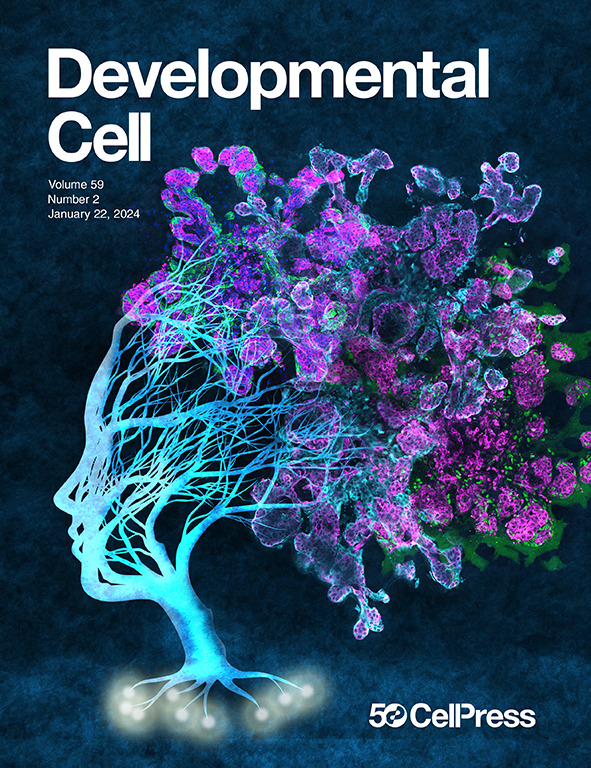在拟南芥中,一氧化氮通过s -亚硝基化抑制MPK6磷酸化来控制气孔发育和胁迫反应
IF 10.7
1区 生物学
Q1 CELL BIOLOGY
引用次数: 0
摘要
在植物中,气生表皮上的气孔在气体交换、光合作用、蒸腾和免疫等多种生物过程中起着至关重要的作用。气孔发育分别受丝裂原活化蛋白激酶(MAPK)级联和一氧化氮(NO)的负向和正向调控。然而,这些信号通路对气孔发育的调控机制尚不清楚。本研究表明,no控制的拟南芥气孔发育在遗传上依赖于MPK3和MPK6。此外,no控制的MPK6在半胱氨酸(Cys)-201位点的s -亚硝基化抑制了其磷酸化,从而稳定了气孔谱系起始的主要调控因子-无言(SPCH),从而促进了气孔发育。MPK6C201S突变在气孔发育和胁迫响应过程中导致NO不敏感。我们提出NO通过s -亚硝基化抑制MPK6活性,从而积极控制气孔发育和胁迫反应,从而确定了NO- mapk信号耦合与特定生物输出的机制。本文章由计算机程序翻译,如有差异,请以英文原文为准。

Nitric oxide controls stomatal development and stress responses by inhibiting MPK6 phosphorylation via S-nitrosylation in Arabidopsis
In plants, stomata on the aerial epidermis play critical roles in various biological processes, including gas exchange, photosynthesis, transpiration, and immunity. Stomatal development is negatively and positively controlled by the mitogen-activated protein kinase (MAPK) cascade and nitric oxide (NO), respectively. However, the regulatory scheme of stomatal development by these signaling pathways remains elusive. Here, we show that NO-controlled stomatal development in Arabidopsis is genetically dependent on MPK3 and MPK6. Moreover, NO-controlled S-nitrosylation of MPK6 at cysteine (Cys)-201 inhibits its phosphorylation, resulting in the stabilization of SPEECHLESS (SPCH), a master regulator of stomatal lineage initiation, thereby promoting stomatal development. An MPK6C201S mutation confers NO insensitivity during stomatal development and stress responses. We propose that NO positively controls stomatal development and stress responses by inhibiting the MPK6 activity via S-nitrosylation, thus identifying a mechanism linking the coupled NO-MAPK signaling to specific biological outputs.
求助全文
通过发布文献求助,成功后即可免费获取论文全文。
去求助
来源期刊

Developmental cell
生物-发育生物学
CiteScore
18.90
自引率
1.70%
发文量
203
审稿时长
3-6 weeks
期刊介绍:
Developmental Cell, established in 2001, is a comprehensive journal that explores a wide range of topics in cell and developmental biology. Our publication encompasses work across various disciplines within biology, with a particular emphasis on investigating the intersections between cell biology, developmental biology, and other related fields. Our primary objective is to present research conducted through a cell biological perspective, addressing the essential mechanisms governing cell function, cellular interactions, and responses to the environment. Moreover, we focus on understanding the collective behavior of cells, culminating in the formation of tissues, organs, and whole organisms, while also investigating the consequences of any malfunctions in these intricate processes.
 求助内容:
求助内容: 应助结果提醒方式:
应助结果提醒方式:


